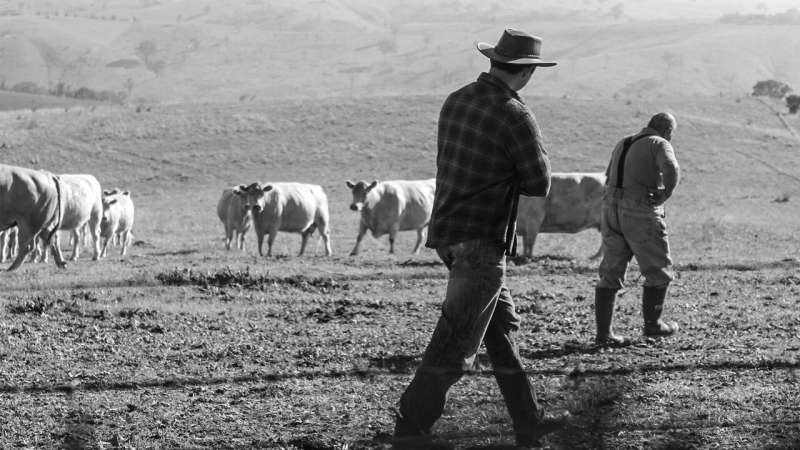Consider farmers at individual level when controlling livestock disease outbreaks, researchers say

Livestock diseases will be better managed by incorporating the behaviors of individual farmers into national infection control policies, according to new research.
The findings are the latest from the Farmer-led Epidemic and Endemic Disease-management (FEED) project, an interdisciplinary research group including epidemiologists, mathematical modelers, behavioral scientists and veterinarians from the Universities of Warwick and Nottingham. The research is published today, July 14, in the journal PLOS Computational Biology, in a paper entitled “Modeling livestock infectious disease control policy under differing social perspectives on vaccination behavior.”
Using sophisticated mathematical models, researchers at Warwick’s Zeeman Institute for Systems Biology and Infectious Disease Epidemiology Research (SBIDER) and from the University of Nottingham have examined the optimal behaviors each farmer can follow during a disease outbreak, which can help them to not only lessen their own immediate costs, but also to slow the spread of infection and reduce losses for the whole industry.
The research team simulated livestock disease outbreaks in several different scenarios and worked out how the best outcomes could be reached—from the perspective of both government policymakers who are looking to protect the wider livestock industry, and from that of farmers who have businesses and animals to protect.
In their models, the researchers analyzed representative livestock systems in the English counties of Devon and Cumbria, looking at the outcomes of various potential disease outbreaks and the actions that might be taken by farmers, for example, vaccinating animals as a precaution; as a reaction; or not vaccinating at all.
The researchers found that what one individual farmer may consider the most effective way to reduce infection risk in their own livestock may not have the same benefit for other farmers.
The researchers found, just as the COVID-19 pandemic has shown how crucial individual behavior is in controlling the spread of an infectious disease in a human population, during a livestock infection the response of each farmer could be critical to protecting animal welfare nationally and keeping the farming industry afloat.
Therefore, the researchers concluded that the actions of individual farmers should be considered in any major policy framework for tackling future livestock disease outbreaks.
Dr. Ed Hill from the University of Warwick is the corresponding author on the paper. He said: “Our analysis of livestock infectious disease control policies, under differing social perspectives on vaccination behavior, can indicate to those developing veterinary health policy the nature of control measures that is optimal both from the industry and the individual farmer-level perspectives.”
Co-author Professor Michael Tildesley from the University of Warwick commented: “Going forward, we would like to build strong ties between the data being gathered on farmer beliefs and the structure of models that contain both disease spread and behavioral dynamics. Ensuring the data used are as reliable and accurate as possible enhances the informative capabilities and robustness of model outputs.”
Professor Matt Keeling from the University of Warwick said: “Most models of livestock disease treat farmers as obeying government rules without question or behaving simply to maximize their own profits. The FEED project adds far greater realism, understanding the different factors that drive farmer behavior in the face of an emerging disease.”
Professor Eamonn Ferguson from the University of Nottingham added: “This paper really highlights the importance of considering and integrating the role of individual behavior when modeling the effect of policies to manage infection. Such inter-disciplinary approaches benefit both science and society.”
National livestock movement bans may prove economically damaging
“Modelling livestock infectious disease control policy under differing social perspectives on vaccination behaviour”, PLoS Computational Biology (2022).
Citation:
Consider farmers at individual level when controlling livestock disease outbreaks, researchers say (2022, July 14)
retrieved 15 July 2022
from https://phys.org/news/2022-07-farmers-individual-livestock-disease-outbreaks.html
This document is subject to copyright. Apart from any fair dealing for the purpose of private study or research, no
part may be reproduced without the written permission. The content is provided for information purposes only.
For all the latest Science News Click Here
For the latest news and updates, follow us on Google News.

